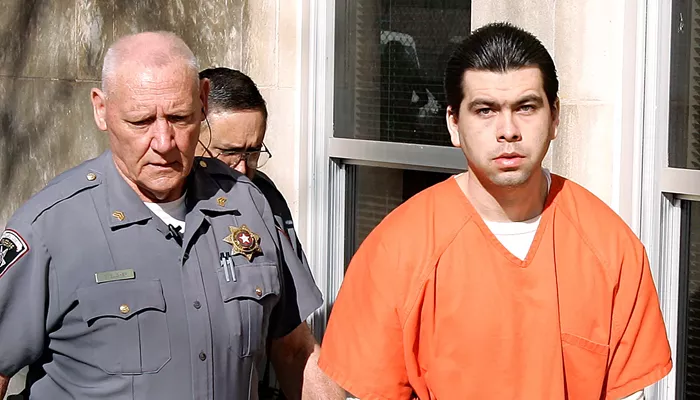A Texas state board has declined to intervene in what may be the first execution in the U.S. linked to a shaken baby syndrome diagnosis. The board rejected clemency pleas from Robert Roberson, a man whose claims of innocence have garnered significant support, including from Republican lawmakers and a detective who argue that his conviction was based on faulty scientific evidence.
The Texas Board of Pardons and Paroles voted unanimously, 6-0, against recommending that Roberson’s death sentence be commuted to life in prison or that his execution be postponed. This decision is a significant setback for Roberson’s attorneys and a diverse coalition of advocates working to halt his scheduled execution on Thursday (Friday AEST).
Roberson, 57, has long maintained his innocence and now faces limited options. Governor Greg Abbott can grant clemency only if the board recommends it. However, Abbott also has the authority to issue a one-time 30-day reprieve without a board recommendation. All board members are appointed by the governor, and in nearly ten years in office, Abbott has only halted one imminent execution, that of Thomas Whitaker in 2018. Abbott stated that he commuted Whitaker’s sentence partly because the surviving victim, his father, felt victimized again by the prospect of executing his son’s killer.
Earlier in the day, the Texas Court of Criminal Appeals denied another request from Roberson for a stay of execution. His legal team has since appealed to the U.S. Supreme Court for intervention. Roberson was convicted in 2002 for the death of his two-year-old daughter, Nikki Curtis, in Palestine, Texas.
“We urge Governor Abbott to grant a 30-day reprieve to allow for litigation and for a court to hear overwhelming new medical evidence showing that Nikki died of natural and accidental causes, not abuse,” said Gretchen Sween, one of Roberson’s attorneys. A spokesperson for Abbott did not immediately respond to requests for comment.
Among those advocating for Roberson’s clemency is Doug Deason, a prominent Texas GOP donor and conservative activist. “I believe he is innocent,” Deason expressed in a post on X (formerly Twitter). He has been in contact with Abbott’s general counsel about Roberson’s case.
The parole board’s decision coincided with a meeting of the Texas House Criminal Jurisprudence Committee, which discussed Roberson’s situation. Brian Wharton, the lead detective in the investigation of Nikki’s death, expressed regret for his role in Roberson’s conviction. “Don’t make my mistake. Listen to Robert. Hear his voice through the documents from his attorney. You will hear innocence,” Wharton told the committee members, many of whom belong to a bipartisan group of over 80 state lawmakers, including at least 30 Republicans, who have urged the board and Abbott to stop the execution.
The case has reignited discussions about shaken baby syndrome, medically recognized as abusive head trauma. Roberson’s supporters argue that his conviction relied on outdated scientific evidence and that the injuries to Curtis were misdiagnosed. They maintain that she died from complications related to severe pneumonia rather than abuse.
Roberson’s attorneys assert that he was wrongfully arrested and convicted after taking his daughter to the hospital. They claim she had fallen from bed after being ill for a week, and that this minor fall could explain the only injury found on her head.
His lawyers have also suggested that Roberson’s undiagnosed autism affected how authorities perceived him during the investigation. Autism can influence communication and social interaction, which may have led to suspicion regarding his emotional response to the tragedy.
The American Academy of Pediatrics and other medical organizations maintain that the diagnosis of shaken baby syndrome is valid and that doctors carefully consider various factors, including any pre-existing conditions, when assessing injuries.
Anderson County District Attorney Allyson Mitchell, who prosecuted Roberson, defended the legal process that led to his conviction. She pointed out that a 2022 hearing dismissed the new evidence presented by Roberson’s attorneys. “I trust in the legal process to ensure everything is right. I believe that happened here,” Mitchell stated.
The Texas parole board has recommended clemency in death row cases only six times since executions resumed in the state in 1982. In three instances—1998, 2007, and 2018—executions were commuted to life sentences shortly before they were scheduled. However, in two cases from 2004 and 2009, then-Governor Rick Perry rejected the board’s recommendations, leading to the executions of those inmates.
In 2019, the board recommended a 120-day reprieve for Rodney Reed, but the Texas Court of Criminal Appeals stayed his execution before Abbott could respond to the board’s suggestion.
Roberson’s scheduled execution follows closely on the heels of Missouri’s execution of Marcellus Williams, which occurred amid ongoing questions regarding his guilt and whether his death sentence should have been commuted to life in prison. Williams was convicted of killing Lisha Gayle, a social worker and former reporter for the St. Louis Post-Dispatch, in 1998.
You Might Be Interested In


